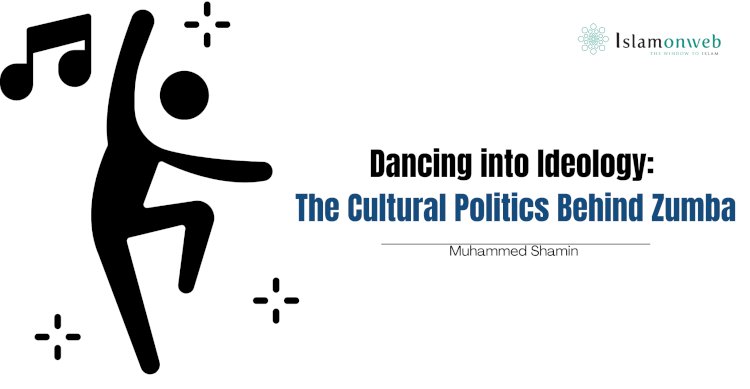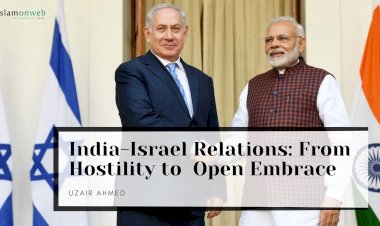Dancing into Ideology: The Cultural Politics Behind Zumba
Kerala, located in the southern part of India, is renowned for its rich and diverse heritage, encompassing a multitude of multicultural and religious identities. Kerala is now under the sway of Communist ideology, which promotes an agenda branded as 'inclusive Communalism.' However, this term conceals a deeper ideological shift. What appears to be a call for inclusivity is, in fact, a calculated move toward shaping a society rooted in Communist ideals, now blended with Western liberal values. Under the guise of progress and unity, this approach gradually sidelines traditional religious and cultural frameworks, promoting an ultra-liberal world view.
Recent tensions between the Muslim community and the Kerala Government have centred around the imposition of Zumba dance in schools. The government now finds itself under pressure due to unified protests from minority groups, showing solidarity across various sectarian lines. The broader goal appears to be the promotion of a so-called ‘free’ society, one that devalues religious and cultural practices in favour of a liberal model stripped of tradition, particularly religious identity.
This study examines the ideological roots of this dispute, situating it within wider debates on secularism, cultural hegemony, and the eroding role of religious values in public education.
Historical Background
"Religion is the opium of the people," said Karl Marx. According to him, religion served as a powerful means of maintaining inequality, exploitation, and slavish obedience among the working class (N.I. Bukharin). Marx also described religious people as the proletariat, victims of oppression sustained in the name of religion. His statement must be understood in its historical context: the separation of the proletariat from the Church emerged from political and religious upheavals that led to prolonged unrest, where the masses were left in suffering.
In contrast, the current political context, particularly in Islam, reveals a different trajectory. Muslim communities across the world resonate through a politics of piety, where religious expression is rooted in devotion rather than suppression or subjugation. For Marxists, an ideal society would consist of people free from religious belief, or at the very least, religious individuals who do not adhere strictly to the doctrines and values they profess.
From a Marxian perspective, the decline of religious and cultural values is not incidental but essential. A society grounded in Marxist ideals often necessitates the marginalization or even elimination of religious activity, not only for ideological purity but to curb the societal unrest and prejudice that religion is believed to foster (Marx, 1844/1977; Engels, 1884/2001). In its place, new social and political norms, along with alternative cultural practices, are introduced, gradually dismantling existing spiritual and moral frameworks.
Louis Althusser argued that ideological state apparatuses function to reproduce identities by displacing traditional beliefs such as religion which often serve elite interests. Thus, the initiation of such innovations ultimately paves the way for the erosion of religion, aligning with Max Weber’s notion of disenchantment of the world in a radically secular, humanist order.
False Consciousness in the Society
The ideology that seeks to combat false consciousness bears resemblance to the current government's attempt to engage with liberal communities by promoting liberalism. In this process, individuals, especially students, who are the future catalysts of change are being conditioned to live under a false sense of consciousness, clouded by religious divides.
According to the Communist Manifesto, overcoming such false consciousness requires individual struggle. This struggle leads to the dialectical conflict necessary for societal progress, ideally in cooperation with the state, a state now seemingly attempting to reshape consciousness along these very lines.
Yuval Noah Harari (2014), in his book Sapiens, warns against the victimisation caused by both the state and the market. He highlights how these forces erode traditional family and community bonds, replacing them with individualised identities defined by consumption. This shift ultimately will dismantle the foundations of both familial and religious identities.
Similarly, Francis Fukuyama, in his influential work The End of History, stresses the idea of the “struggle for recognition.” Drawing from Hegel, he presents this as the ultimate human pursuit: to attain the highest state of human consciousness. In his Phenomenology of Spirit, Hegel charts this journey as a progression from basic sense-certainty to self-consciousness, culminating in what he terms the Absolute Spirit, a fully realised human awareness.
Zumba as Cultural Apparatuses: The Hidden Agenda
The integration of Zumba, a widely commercialised fitness movement, into public education marks a significant shift in how the body is perceived within ideological frameworks. Critics such as T.K. Ashraf, head of the Wisdom Islamic Organization, compare Zumba classes to “DJ parties,” conjuring images associated with moral decline and indulgence. While some argue that such activities may prevent children from turning to drugs, there is no concrete evidence to support this claim. In fact, several studies suggest that practices like yoga may have similar positive effects on both adults and children.
Viewed through this lens, the State’s promotion of dance as an educational tool is far from neutral; it functions as a cultural apparatus aimed at normalising liberal expressions of the body, often at the expense of traditional values of modesty.
The defence of the Zumba initiative by Kerala’s Minister of Education V. Sivankutty, who urged the public to “keep religion away from education”, reveals a broader ideological stance that prioritises secular-liberal ideals over religious pluralism. When leaders of the Samastha Kerala Jam’iyyathul Ulama, a prominent Islamic scholars council in Kerala, raised concerns about school hours overlapping with madrasa education, the state’s dismissive response reflected a growing conflict between state policies and parallel religious education.
This tension is not new. The hijab debate in Malappuram, where CPI(M) state committee member K. Anil Kumar claimed that the Communist movement had “liberated” Muslim women from the hijab, illustrates a recurring narrative. Such remarks reinforce the party’s idea of liberation, which implicitly equates religious practices with forms of oppression.
However, this narrative overlooks the lived experiences of many devout Muslim women who view such practices as expressions of faith and empowerment, a perspective explored by Saba Mahmood (2005) in Politics of Piety. Rather than fostering an inclusive Communalist society, interventions by the government risk deepening existing divides, especially when perceived as coercive or culturally insensitive within the framework of a Communist society. In its attempt to construct a singular secular identity, the state unintentionally marginalises religious communities and curtails their capacity to shape future generations through educational systems rooted in their own cultural and spiritual heritage.
Stanley Cohen’s (1972) concept of moral panic is particularly relevant here. As Cohen observed, societies often react with disproportionate fear to perceived threats from youth subcultures. In this case, however, it is the state that plays the role of cultural disruptor, not the youth, provoking tension not between generations, but between opposing visions of modernity and tradition. The inclusion of Zumba in school curricula follows this pattern, urging students to engage in a globalised, commodified form of bodily expression, often disconnected from their local and religious identities.
This shift reflects a broader trend towards what Max Weber (1922/1993) termed the disenchantment of the world, where spiritual and religious meaning is gradually replaced by rationalised, secular alternatives.
Conclusion
For Muslim men and women who are practical in their beliefs, dismantling the traditional framework that shapes their spirituality is no simple task. As Saba Mahmood argues in Politics of Piety, Islamic values and norms are not imposed but are consciously and actively embraced, especially by women, as a vital part of practising their faith. This presents a particular challenge for political Communists, who may find their methods less effective when confronting such deeply rooted convictions, especially among both the youth and adults.
Recent initiatives such as the campaign to "Save Muslim Women," the push to abandon the hijab, extended school hours that conflict with madrasa education, and the introduction of Zumba as a state-endorsed form of exercise, have only deepened the dilemma for Muslim students navigating their identity within public institutions.
In the end, a pressing question continues to haunt the religious mind: What should I do next? When modern ideologies of human consciousness attempt to separate religion from daily life, they often leave individuals in spiritual confusion. These converging ideological forces may not simply alter our societal structures but could propel us into an entirely different mode of existence, one that might best be described as Nowhere.
About the author:
Muhammed Shamin is from Kannur, Kerala, India. He has completed his graduation in English literature from IGNOU and Islamic Studies from Darul Huda. Currently, he is a PG scholar of the Department of Civilizational Studies at Darul Huda Islamic University.
References
- Althusser, L. (1971). Ideology and ideological state apparatuses. In Lenin and philosophy and other essays (pp. 127–186). Monthly Review Press.
- Cohen, S. (1972). Folk devils and moral panics: The creation of the Mods and Rockers. MacGibbon and Kee.
- Engels, F. (2001). The origin of the family, private property and the state (Original work published 1884). Penguin Classics.
- Fukuyama, F. (1992). The end of history and the last man. Free Press.
- Harari, Y. N. (2014). Sapiens: A brief history of humankind (pp. 402–404). Harvill Secker.
- Mahmood, S. (2005). Politics of piety: The Islamic revival and the feminist subject. Princeton University Press.
- Marx, K. (1977). Economic and philosophic manuscripts of 1844 (D. J. Struik, Ed.). Progress Publishers. (Original work published 1844)
- Weber, M. (1993). The sociology of religion (E. Fischoff, Trans.). Beacon Press. (Original work published 1922)
Disclaimer
The views expressed in this article are the author’s own and do not necessarily mirror Islamonweb’s editorial stance.
























Leave A Comment